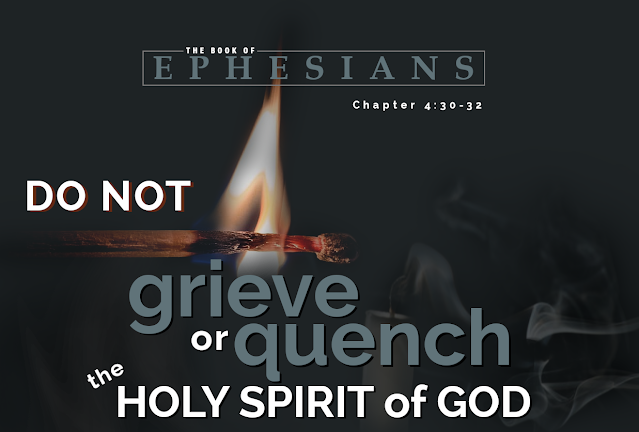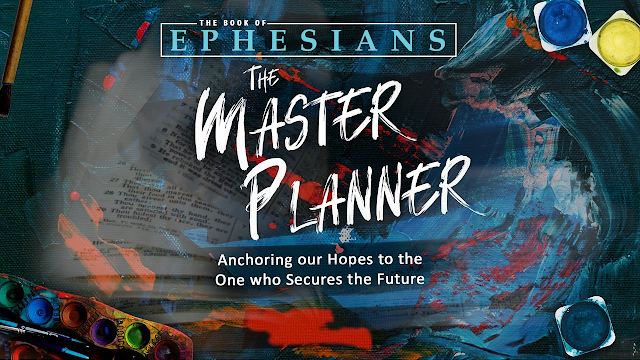Since the environment became of critical importance in the late 1980s and now into the 21st century, Western Culture has been bombarded with new spheres of worry. Awareness of Global Warming, Climate Change, the depletion of oxygen, air quality, and expanding bubbles of ozone at the north and south poles of the Earth, these have become rallying points for the Godless Leaders of the United Nations, and have become the mantras of those that peddle doom and gloom. Every world citizen should be doing their part to bring “healing” to our environment and air quality.
Bumper Stickers have promoted the idea of “Think Globally - Act Locally.”
It's not a new idea, and Wall Street’s Public Relations & Advertising Moguls were not the first to use this idea. God Himself was already thinking of mankind’s end from before the foundation of the Earth. He saw the corruption of everything on Earth in advance, and made plans for having a reconciliation of everything back to Himself and Earth’s original glory.
God’s word is evidence of His warnings, and His prophecies foretell of a Redeemer/Savior coming to Earth to reconcile all things to Himself. That’s God’s world-wide, global thinking; every person, place, and thing would need His healing touch according to His prophecies.
And lately, as we have been celebrating our Redeemer/Savior’s birth, we have read of His promises to individuals concerning His global plan: promises made to Zacharias and Elizabeth; to Mary and Joseph; and even to one of our Bible characters we’ll read of today, Simeon. God has been thinking globally and acting locally throughout the ages by using righteous and devout believers.
Peter wrote of the prophets God used, referring to them as “holy men of God spoke as they were moved by the Holy Ghost.” (2 Peter 1:17) And to these folks we have been reading of in preparation for Christmas, God was making promises to them that would fulfill His thoughts and plans world-wide.
God has not for a single moment forgotten His Creation. All contingencies for human free will have been made, and all things will be reconciled in Earth’s final days. God has planned Globally and acted locally …with Believers.
Luke 2:21-40 - "Prophecy and Promises"
Summary/Notes:
The entire physical universe was created for God’s glory. When we rebelled, the universe fell under the weight of our sin. Yet God did not give up on us. God is not some hapless inventor whose creation failed. He has a masterful plan. In fact, from before the creation of the world, before the beginning of time, God had a plan to redeem the world through the atoning work of his Son, Jesus. All who are in Christ would be conformed to His image, and adopted as children of God. The message throughout the Old and New Testaments is the promise of a Savior, that Savior is Jesus. Salvation is not the work of humanity, it is the work of God through Christ.
As we continue our study in Luke's gospel, we know that Jesus Christ, the Messiah, had been born. The long- awaited promised good news had been announced (1:26–38), affirmed (1:39–56), and arrived (2:1–20).
We are looking at Luke chapter 2 and verses 21 through 40, in which Luke produces testimony to the identity of the child, testimony from His parents, Joseph and Mary, testimony from an old man named Simeon, and an old woman named Anna. This is important for this testimony to be given because the Old Testament law required that all truth be confirmed by two or three witnesses, credible, trustworthy witnesses. Here we have righteous Joseph and Mary, righteous Simeon, and righteous Anna, to give testimony to the fact that the child born in Bethlehem is indeed the Messiah, the Savior of the world, the Son of God, the Lord Jesus Christ and so we're looking at this testimony.
It's now eight days later, and Jesus has gone through the covenantal custom of circumcision (v. 21; cf. Genesis 17:12; Leviticus 12:1–3).
Mary and Joseph would bring Jesus to the temple, and God would strengthen their faith further by these two older saints: Simeon and Anna.
Four hundred years before the birth of Christ, the prophet Malachi, whose prophecy ends our Old Testament, said that the Sun of righteousness would rise with healing in His wings. And the Old Testament then closes with a prophecy of the coming of Messiah which occurred four hundred years later. Many of the people in Israel paid very little attention to that promise, but there was a remnant of people in the nation that looked to the fulfillment of Malachi's promise and they were anxiously waiting for the arrival of the Sun of righteousness. Simeon and Anna were two of this small remnant of believers.
These faithful believers had, for a long time, anticipated the arrival of God’s promised Messiah. They now experienced what they had been so longingly expecting. Therefore, they celebrated. But this led them to anticipate again. For with the arrival of Messiah, greater things were still to come, not only in the city of Jerusalem, but throughout the nation of Israel and in all the nations.
Their celebration of fulfilment, coupled with their anticipation of future fulfilment, illustrates the biblical truth referred by theologians as “already / not yet.” This is where you and I live—or where we should be.
In Jesus, the fulfillment of the ages has come. The Messiah, so longed for in the history of God’s people, brings together the reign of David and the promise of life to the family of Jacob/Israel, to the Gentile nations and to all of mankind. This passage will help us to wait for God’s full and final salvation. It will help us to persevere through times of hopelessness. May God equip us by scripture’s encouragement, and by the Spirit’s empowerment, to faithfully anticipate the fullest extent of his good news.















